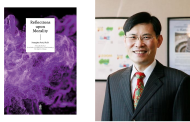Three faculty members, affiliated with UNIST have been selected as the 9th members of POSCO TJ Park Science Fellowship.
Professor Jung-Hoon Park, Professor Jayil Lee, and Professor Jae-ICK Kim in the School of Life Sciences, were among the 32 recipients of the 2018 POSCO TJ Park Young Professor Fellowship, the Foundation announced on October 11, 2017. Beginning in 2018, each fellow is eligible to pursue his or her choice of research topics, with research funding of KRW 70 million for the next two years. Ultimately, the program works to support talented young scientists of Korea and foster their growth as world-renowned scientists.
In addition, UNIST has turned out a large number of talented TJ Park fellows, together with KAIST and Seoul National University in which each produced 4 fellows, this year. Others, besides these three, had only produced one fellow, each this year.
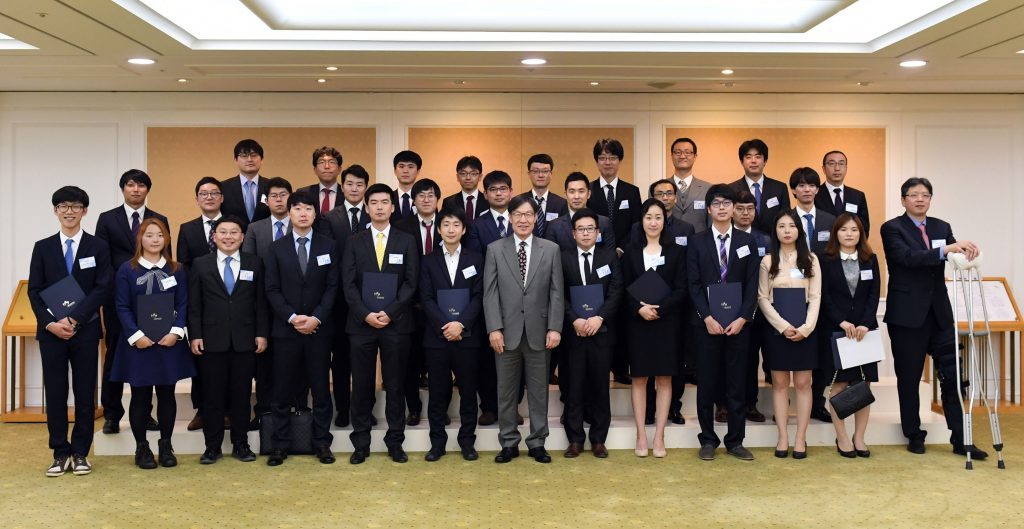
The recipients of the 2018 TJ Park Science Fellowship pose for a group photo after the award ceremony. This includes Professor Lee (back row, 3rd from right), Professor Park (second row, 1st from right), and Professor Kim (second row, 2nd from right).
Started in 2009, the TJ Park Science Fellowship, selects and supports young scientists including post-graduate students in Korea to foster creative research in basic sciences and secure excellent researchers.
In keeping with its goal of recognizing potential groundbreaking researchers in their respective fields, the award is annually presented to approximately 30 scientists in five areas of mathematics, physics, chemistry, life sciences, and convergence study. This year, the field of convergence science field has been newly-added to this program and Professor Jung-Hoon Park in the School of Life Sciences has been named as the only awardee.
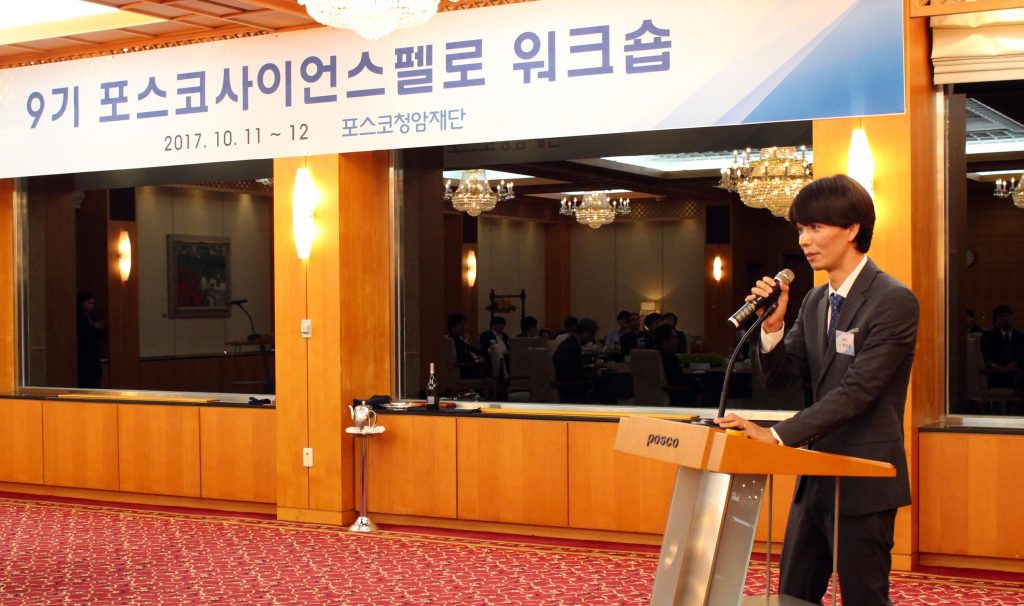
Professor Jung-Hoon Park in the School of Life Sciences is delievering a presentation at the 9th POSCO Science Fellowship Workshop, held on October 11, 2017.
Jung-Hoon Park, a professor of Life Sciences at UNIST, explores the development of new techniques to control the propagation of light through opaque media. This fellowship has been awarded to Professor Park for his plans to work on the super-resolution light microscopy techniques to monitor live human brains. Professor Park has also reported that he has succeeded in observing inside the living mouse brain under very high resolution, using his recent development, called ‘Multi-Pupil Adaptive Optics (MPAO)’. The findings of this research have been published in the renowned scientific journal, Nature Methods (IF=25.328).
“In order to better understand a variety of biological phenomenon and ultimately human diseases, we must noninvasively look at the overall interaction in its natural environment,” says Professor Park. “This fellowship will assist me and my team to continue our research in developing deep, non-invasive imaging technique of live brains.”
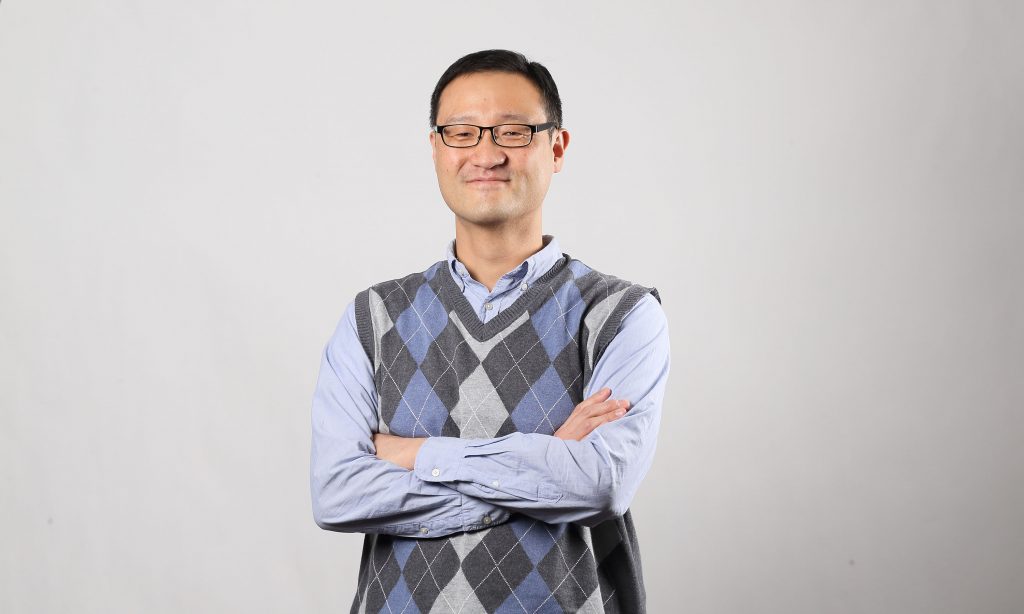
Professor Jayil Lee in the School of Life Sciences at UNIST.
Jayil Lee, a professor of Life Sciences, studies the mechanisms in molecular biology, using biophysics. The fellowship has been awarded to Professor Lee for his plan to solve the principle of restoring genetic damage from a biophysical standpoint. Every moment, DNA is repaired from damage caused by many different sources, such as radiation or the toxic and radioactive substances in cigarettes. Such repair process is happening constantly in our bodies. This is what Professor Lee tries to unravel via biophysics.
Professor Lee notes, “I am extremely honored and grateful to be the recipient of the 2018 TJ Park Science Fellowship.” He adds, “I would like to take this moment to thank the evaluation committee who saw potential in my research.”
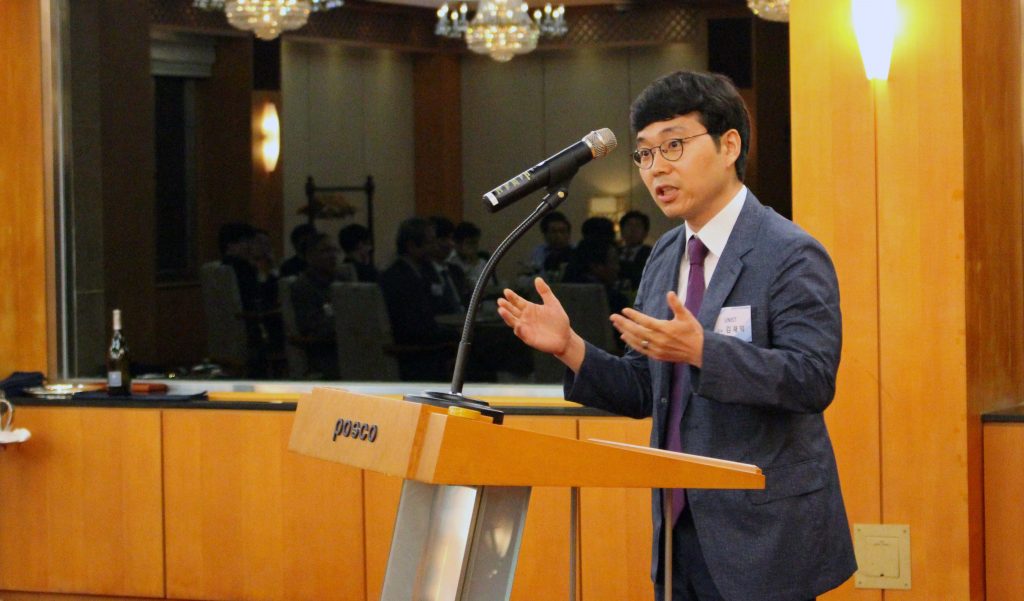
Professor Jae-Ick Kim in the School of Life Sciences is delievering a presentation at the 9th POSCO Science Fellowship Workshop, held on October 11, 2017.
Jae-Ick Kim, a professor of Life Sciences, received this fellowship for his plan to study the functional changes in dopaminergic synaptic transmissions in Parkinson’s disease. Dopamine is one of many important neurotransmitters that plays prominent roles in regulation of memory, mood, as well as processing of natural rewards.
“Malfunctions to the dopaminergic synaptic signaling could appear long before early signs of Parkinson’s disease appear,” says Professor Kim. “Taking advantage of multi-disciplinary approaches including whole-cell patch, single-unit recording, two-photon laser microscopy, and optogenetics, we hope to identify pre-symptomatic physiological markers for Parkinson’s disease.”
The award ceremony for this year’s TJ Park Science Fellowship was held at the POSCO Center, Pohang, South Korea on October 11, 2017. Approximately 60 people attended the ceremoly, including 32 recipients of the 9th POSCO TJ Park Science Fellows, 16 of the former fellow members, selection board members, as well as the executive directors of the Foundation.


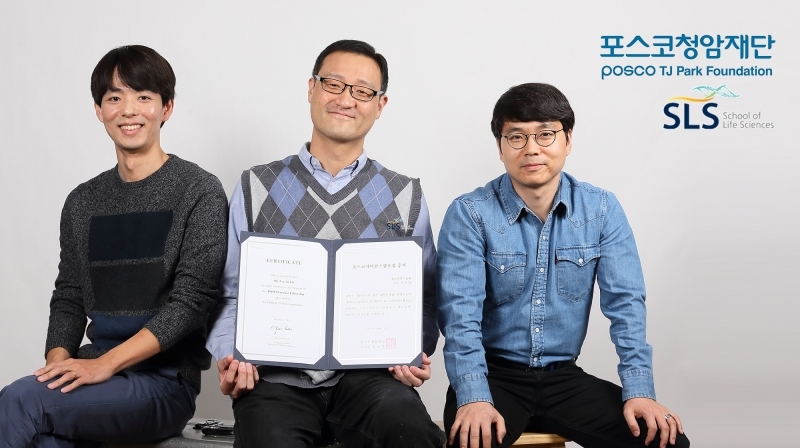



![[2026 UNIST Matriculation] “Design Questions the World Has Never Seen!”](https://news.unist.ac.kr/wp-content/uploads/2026/02/사진-박종래-UNIST-총장이-2026년-입학식사를-전하고-있다-1-1-190x122.jpg)
![[2026 UNIST Commencement] “Become Way Makers Who Open Paths Where None Are Drawn!”](https://news.unist.ac.kr/wp-content/uploads/2026/02/사진-박종래-총장이-UNIST-학위수여식사를-전하고-있다-3-1-190x122.jpg)
![[2026 UNIST Commencement] Voices of Class of 2026](https://news.unist.ac.kr/wp-content/uploads/2026/02/Untitled1-190x122.jpg)
